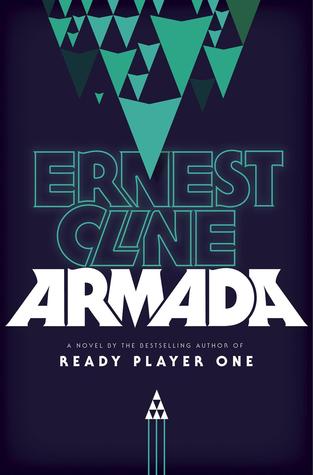Armada
Ernest Cline
Genre: Science Fiction
Summary (from Goodreads):Zack Lightman has spent his life dreaming. Dreaming that the real world could be a little more like the countless science-fiction books, movies, and videogames he’s spent his life consuming. Dreaming that one day, some fantastic, world-altering event will shatter the monotony of his humdrum existence and whisk him off on some grand space-faring adventure.
But hey, there’s nothing wrong with a little escapism, right? After all, Zack tells himself, he knows the difference between fantasy and reality. He knows that here in the real world, aimless teenage gamers with anger issues don’t get chosen to save the universe.
And then he sees the flying saucer.
Even stranger, the alien ship he’s staring at is straight out of the videogame he plays every night, a hugely popular online flight simulator called Armada—in which gamers just happen to be protecting the earth from alien invaders.
No, Zack hasn’t lost his mind. As impossible as it seems, what he’s seeing is all too real. And his skills—as well as those of millions of gamers across the world—are going to be needed to save the earth from what’s about to befall it.
It’s Zack’s chance, at last, to play the hero. But even through the terror and exhilaration, he can’t help thinking back to all those science-fiction stories he grew up with, and wondering: Doesn’t something about this scenario seem a little…familiar?
At once gleefully embracing and brilliantly subverting science-fiction conventions as only Ernest Cline could, Armada is a rollicking, surprising thriller, a classic coming of age adventure, and an alien invasion tale like nothing you’ve ever read before—one whose every page is infused with the pop-culture savvy that has helped make Ready Player One a phenomenon.
Review: I LOVED Cline's first novel, Ready Player One, and this book didn't live up to the high expectations I had for it. It was still a fun quick read with an entertaining and fast-moving plot, but the depth of character was lacking, and the 1980s references were needlessly overdone. And while Cline acknowledges that he borrowed ideas from all kinds of 1980s books and movies (and references them in the book as background knowledge that the main character shows off continuously), the ideas seemed a bit too borrowed. I think the book would have benefited from being longer and more involved; it felt like it was written and published quickly to take advantage of the popularity of Ready Player One.
Rating: 3 stars

No comments:
Post a Comment